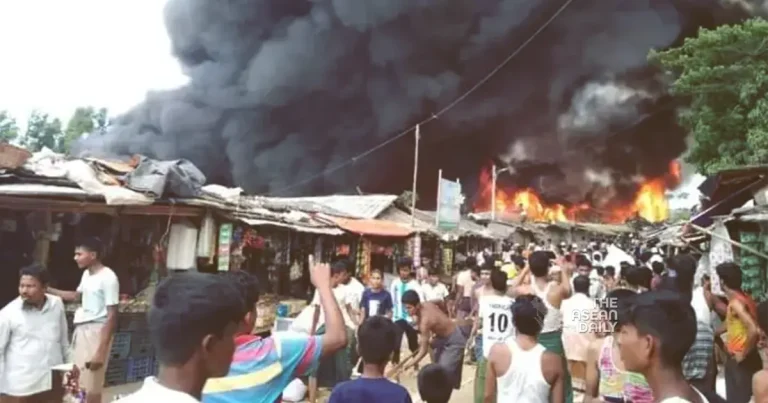27-5-2024 (YANGON) Myanmar’s persecuted Rohingya Muslim minority is confronting renewed threats of violence and displacement as clashes intensify between the powerful Arakan Army ethnic rebels and the ruling military junta in western Rakhine State, UN agencies and aid groups warn.
An estimated tens of thousands of Rohingya have fled towards Bangladesh since mid-May seeking safety, though the neighbouring nation remains reluctant to accept more refugees. Many of those remaining in Rakhine are in desperate need of humanitarian assistance.
The Arakan Army (AA) claimed control over Buthidaung town earlier in May after battles where the ethnic fighters stood accused of targeting Rohingya, allegations they deny. Reuters could not verify the claims independently, while junta spokespersons did not respond to requests for comment.
The AA is now advancing on the border town of Maungdaw, home to a large Rohingya population which the Myanmar junta will likely seek to defend, raising the spectre of more severe brutalities.
“We see clear and present risks of a serious expansion of violence as the battle for neighbouring Maungdaw town has begun – where the military maintains outposts and where a large Rohingya community lives,” a UN Human Rights spokesperson stated.
The long-persecuted Rohingya fled en masse to Bangladesh after a 2017 military crackdown, with nearly one million now languishing in overcrowded refugee camps there. Mohammed Taher, a Rohingya refugee in Bangladesh, said he recently spoke to a friend in Maungdaw describing the community living in fear.
“Many want to flee from Rakhine but Bangladesh is not opening its door for Rohingya,” Taher said. UN estimates suggest recent fighting displaced some 45,000 Rohingya to areas along the Naf river border, where a senior Bangladeshi border guard official told Reuters last week “no Rohingya will be allowed to enter”.
Myanmar has been gripped by turmoil since the 2021 military coup sparked a nationwide armed uprising against the junta, alongside long-running ethnic rebel insurgencies. The conflict in Rakhine reignited last November when an AA ceasefire with the junta collapsed, leading to rebel battlefield gains.
“Faced with mounting losses in Rakhine, the regime has resorted to arming members of the Rohingya ethnic minority to counter the Arakan Army’s advance,” the International Institute for Strategic Studies’ Morgan Michaels said in a May report, adding “the AA has reacted with inflammatory rhetoric and violence directed at the Rohingya.”
Amid the renewed Rakhine conflict, “Rohingya civilians are increasingly being caught in the middle,” said the UN’s humanitarian coordination body OCHA in its latest report, estimating over 350,000 are now displaced across the state after years of strife, with many lacking access to basic services.
“We are witnessing a near total absence of humanitarian assistance for communities who rely on it,” medical charity Médecins Sans Frontières stated, noting hospitals in Buthidaung and Maungdaw had closed.
The AA, which seeks an autonomous ethnic state, has warned of more battles ahead, urging civilians in Buthidaung, Maungdaw and Thandwe to dig bomb shelters or evacuate. The group denies targeting Rohingya but says some 200,000 internally displaced are sheltering in areas it controls in the two towns, appealing for international aid.
“The situation is incredibly fraught and dangerous,” said former US Ambassador to Myanmar Scot Marciel. “In some ways, this is an early test of whether a post-military-rule Rakhine State with significant autonomy can work.”




